Exchange visits are crucial for early-career researchers. This is the take-home message of four scientists from Least Developed Countries (LDCs) who presented their experience as fellows of a recently enacted exchange programme in Trieste, Italy.
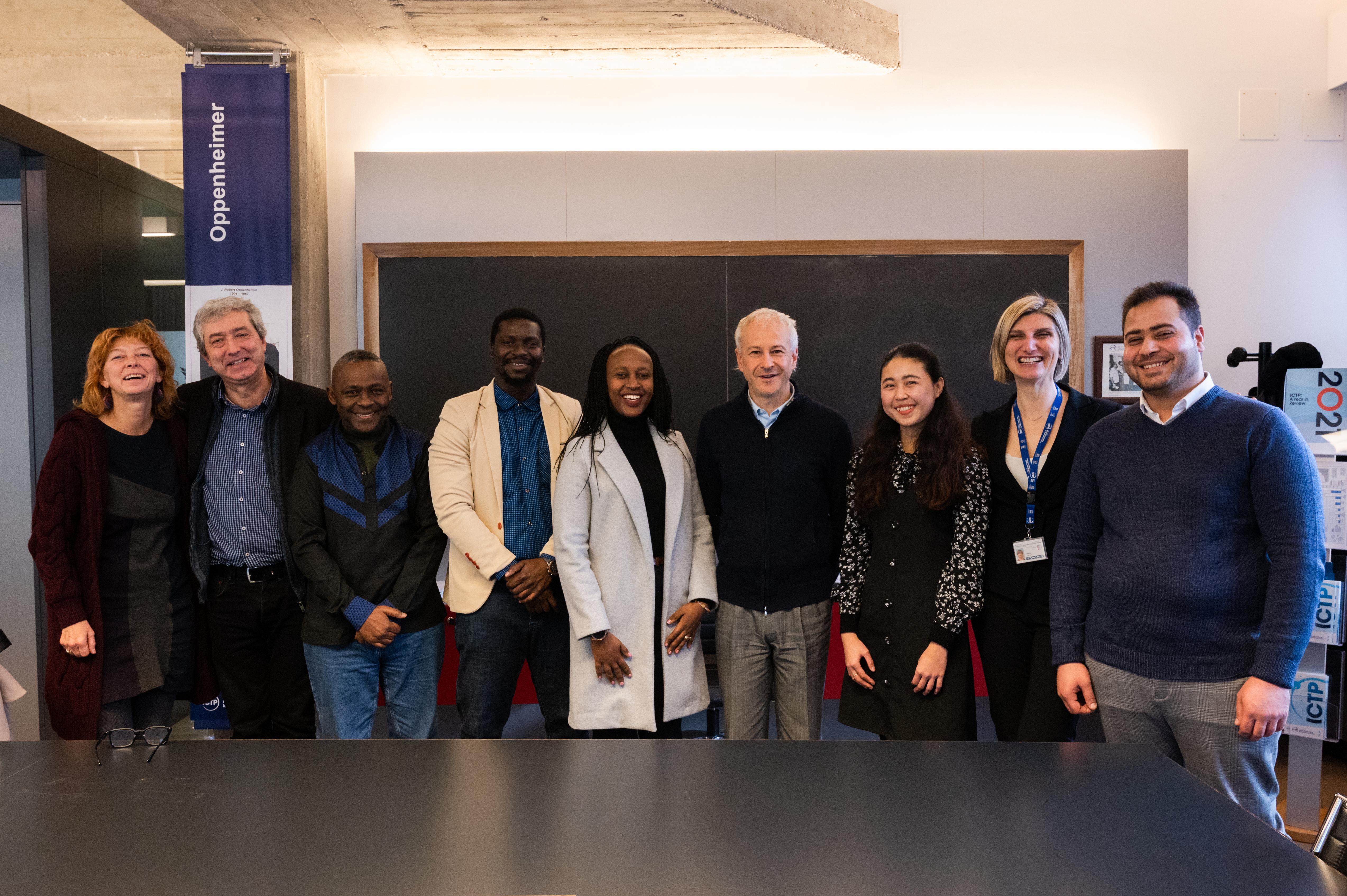
Ousman Bajinka of The Gambia, Lykeang Muk of Cambodia, Gaelle Ndayizeye of Burundi and Edrees Khan Rahmatzada of Afghanistan spent about six months in Trieste as part of PACTs (ProgrAmme of CollaboraTions with LDCs). Here, they carried out research projects at the International Centre for Genetic Engineering and Biotechnology (ICGEB).
"The developing world needs science. And Trieste—with its international centres such as TWAS, ICGEB, and others—offers the perfect place to learn new skills and position early-career scientists to serve the global South," said TWAS Executive Director Romain Murenzi.
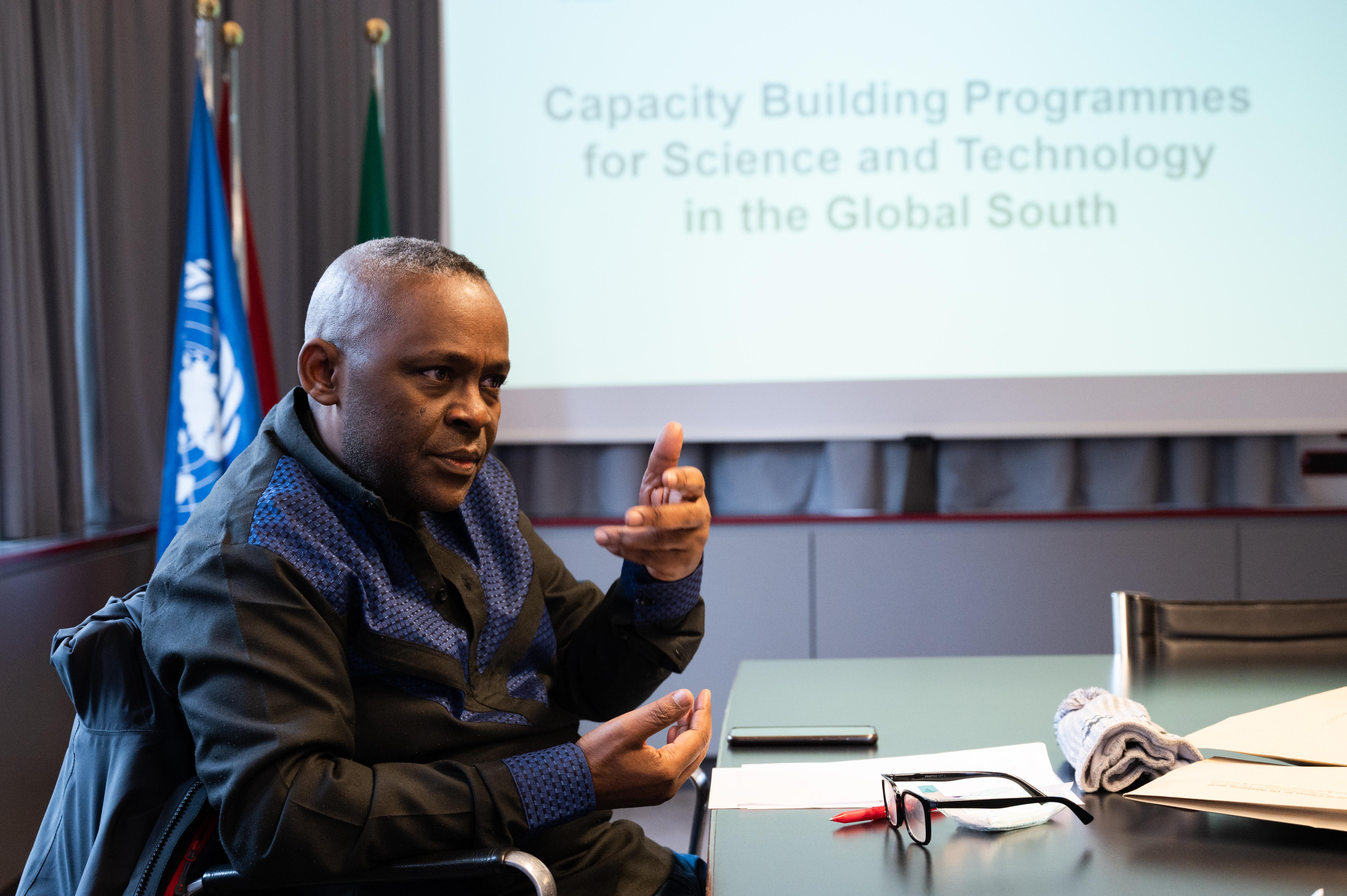
PACTs is a five-year programme that the UN Technology Bank for Least Developed Countries (UNTBLDC), TWAS and ICGEB have endorsed in 2020. Its aim is to increase the scientific competence of early-career researchers from LDCs, aged 45 or less, by exposing them to experienced scientists in modern, well-equipped laboratories.
After the first, three-year phase, fellows were selected and research training began. The programme is now in its second, two-year phase, in which results are being monitored on the way to a final evaluation. The United Nations defines LDCs as “low-income countries confronting severe structural impediments to sustainable development”. A major goal of PACTs is to change this trend and promote local development through a new generation of well-trained scientists. So, the programme aligns with some of the U.N. Sustainable Development Goals (SDGs). It particularly focuses on SDG4, ensuring inclusive and equitable quality education; SDG10 reducing inequalities; and SDG17 forging partnerships. PACTs has three strategic approaches to meeting its goals.
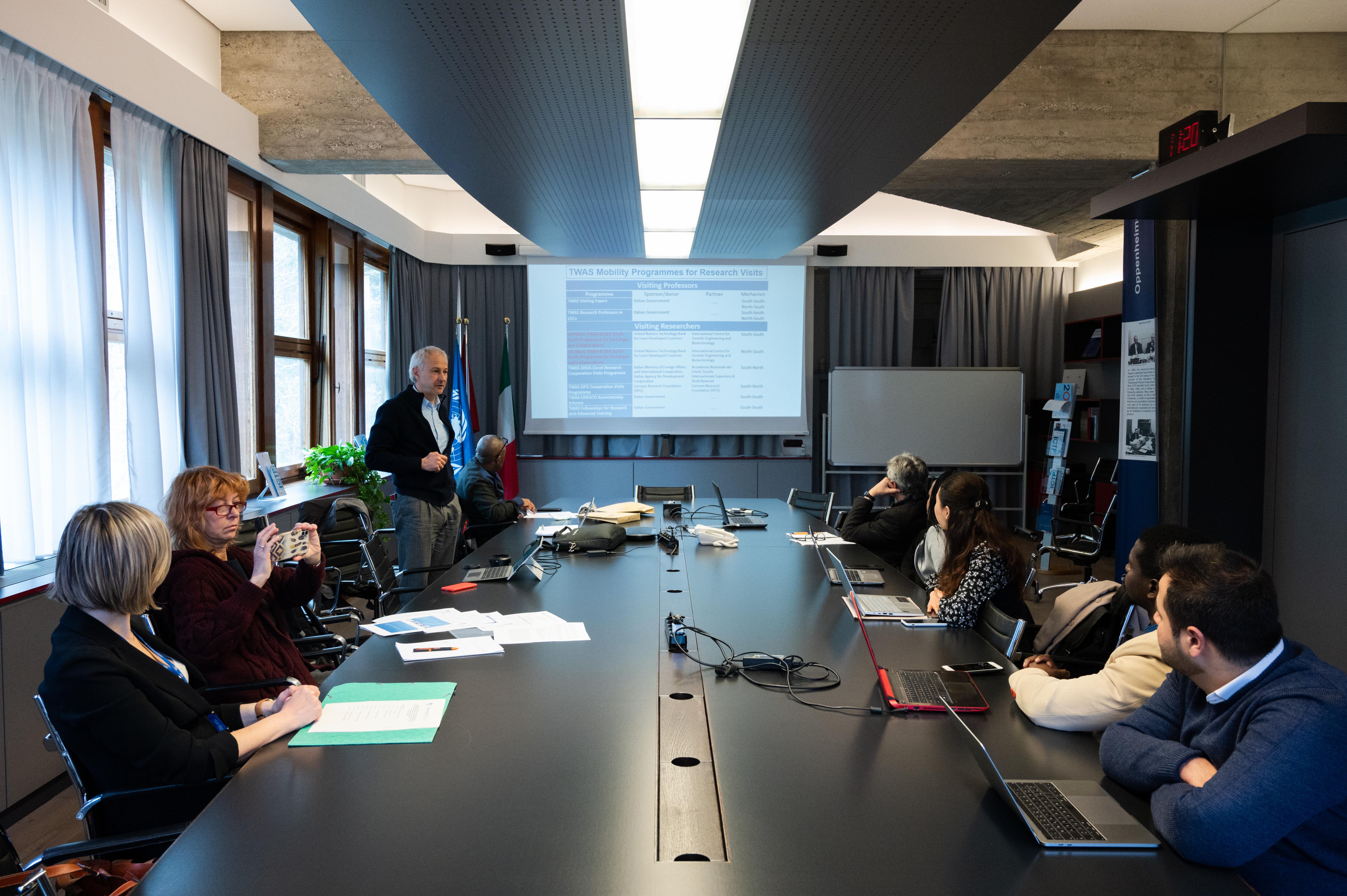
- The South-South programme allowed scientists from LDCs to visit ICGEB laboratories in India and South Africa.
- The North-South programme aimed to strengthen biotechnology policies and regulatory capabilities of LDCs, with qualified personnel from ICGEB conducting workshops on-site.
- The South-North programme offered early-career researchers from LDCs the chance to pay skill-building visits of up to six months at ICGEB's laboratories in Trieste.
The South-North programme in particular has enrolled five young researchers from Afghanistan, Burundi, Cambodia, Ethiopia, and The Gambia. Four of them worked at ICGEB in Trieste. The Ethiopian scientist, Abeba Haile Mariamenatu, completed her 6-month visit at ICGEB in New Delhi, India.
The four scientists who worked in Trieste gave their presentation on 1 March, an event that, for three of them, marked the end of their experience in Italy.
A turning point in a young scientist’s career
Globally, the project trained 12 young scientists from Afghanistan, Burkina Faso, Burundi, Cambodia, Ethiopia, The Gambia, Mozambique, Nepal, Sudan and Togo. All four of the scientists who trained in Trieste reported several benefits from the experience. Not only did they learn technical skills that they are bringing back home to share with colleagues. They bolstered their self-confidence and improved their ability to deliver public presentations.
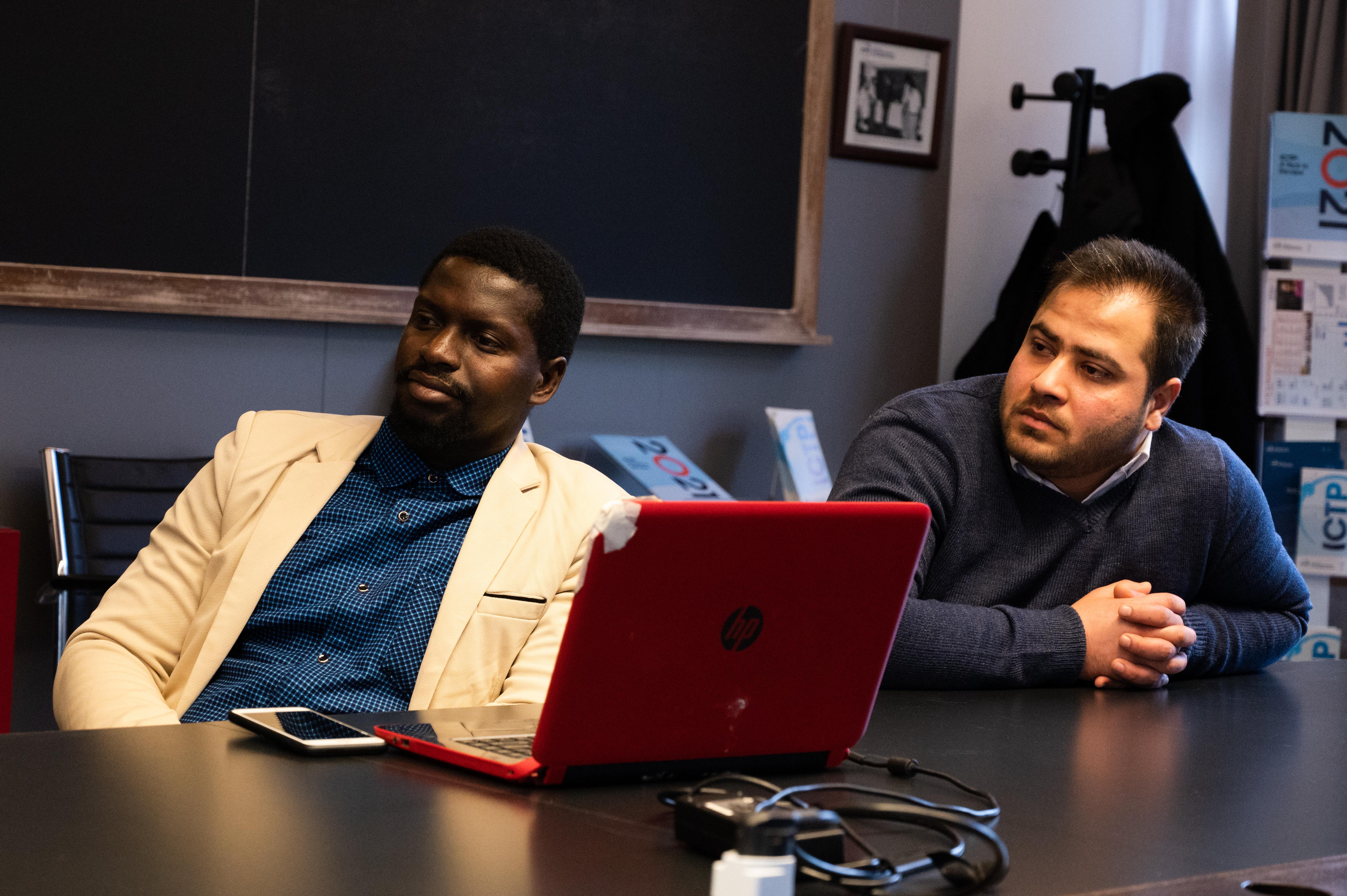
Ousman Bajinka, a microbiologist at the University of The Gambia, worked at ICGEB from October 2022 to March 2023. He learned techniques such as gene cloning, to develop potential tools to address post-COVID-19 lung fibrosis. "In The Gambia I'm a teacher and I teach theory. But after this experience, I can also teach practical things," he said, adding that his experience was “a great success”.
Not only Bajinka acquired new skills such as cell culture techniques, but he also enjoyed seminars and lab meetings, getting the most from every event.
Taking part in various projects was enriching. In fact, one of the chapters of his PhD thesis, which he will defend within a few months, he describes the work he has carried out at ICGEB. "Harnessing theoretical knowledge into practical applications gave me the self-confidence I needed to better supervise my students back home," he said.
Lykeang Muk is a research methodologist at the University of Puthisastra, in Phnom Penh, Cambodia. At ICGEB—where she worked from October 2022 to March 2023—she developed a project to research bacteria that live on rice roots. Her work focuses on how these bacteria communicate with each other, and if they could be effective against microorganisms that kill rice.
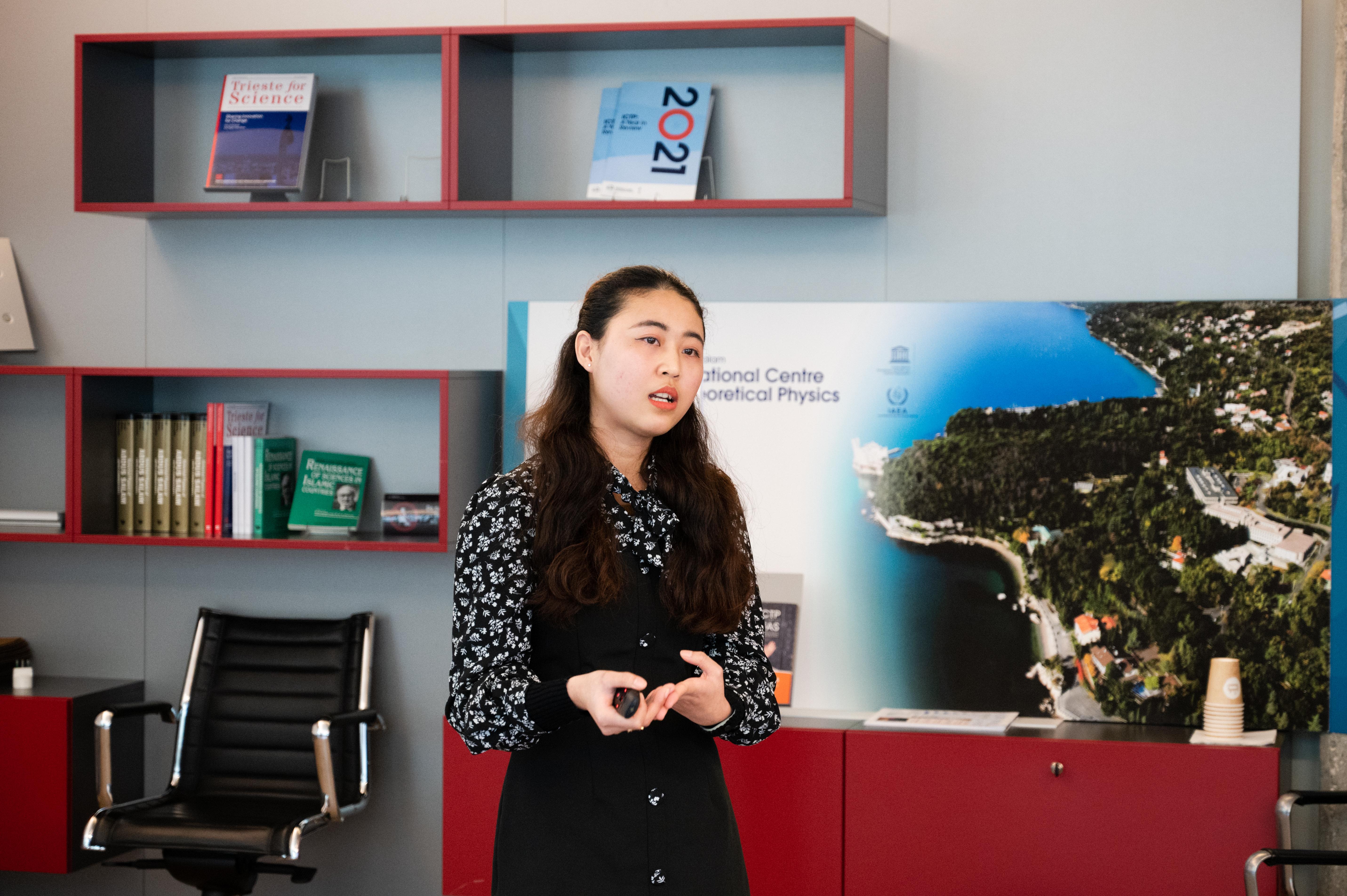
With her studies, she hopes to find new compounds helpful in promoting better rice growth and preventing rice diseases. "This experience was a turning point in my career, as I stepped out of my comfort zone growing as a scientist and setting higher standards in my research," she said.
The international environment that she experienced at ICGEB exposed her to different cultures, improving her soft skills, she said. "Today, I know how to do better experiments and how to communicate better."
Today, she is back to Cambodia, and she is working with her professors, motivating other young students to experience exchange periods abroad and to become active resources for the country.
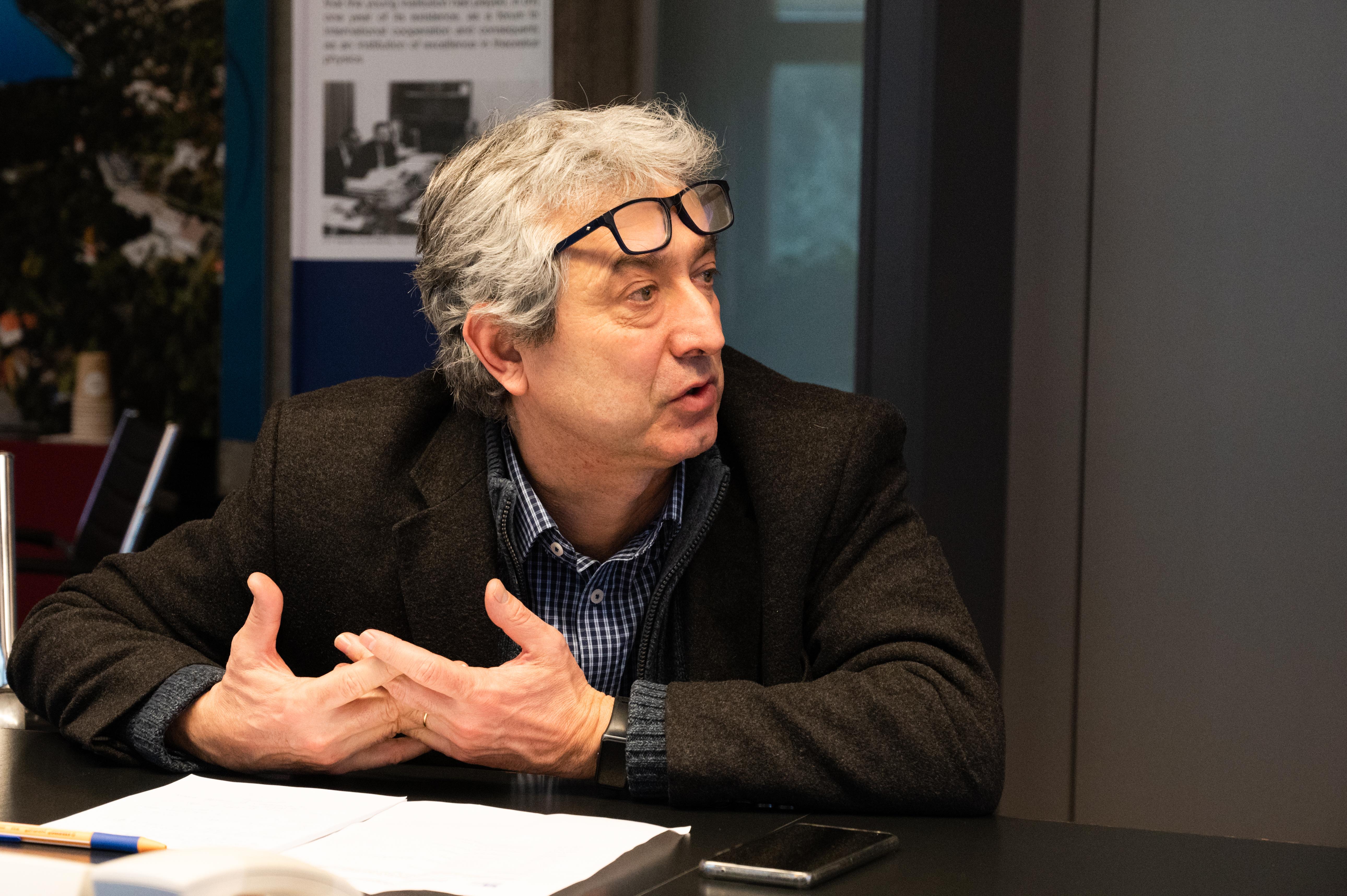
Gaelle Ndayizeye is a young scientist studying plant biodiversity and nature conservation at the University of Burundi, in Bujumbura. At home, she has focused on the ecosystems of Kibira National Park, the largest rainforest of Burundi. She has investigated how this ecosystem provides benefits to the communities who live around the Park, such as Twa hunter-gatherers and farmers of Bantu origin. From October 2022 to March 2023, she worked in the ICGEB bacteriology and plant bacteriology research group under the supervision of Vittorio Venturi.
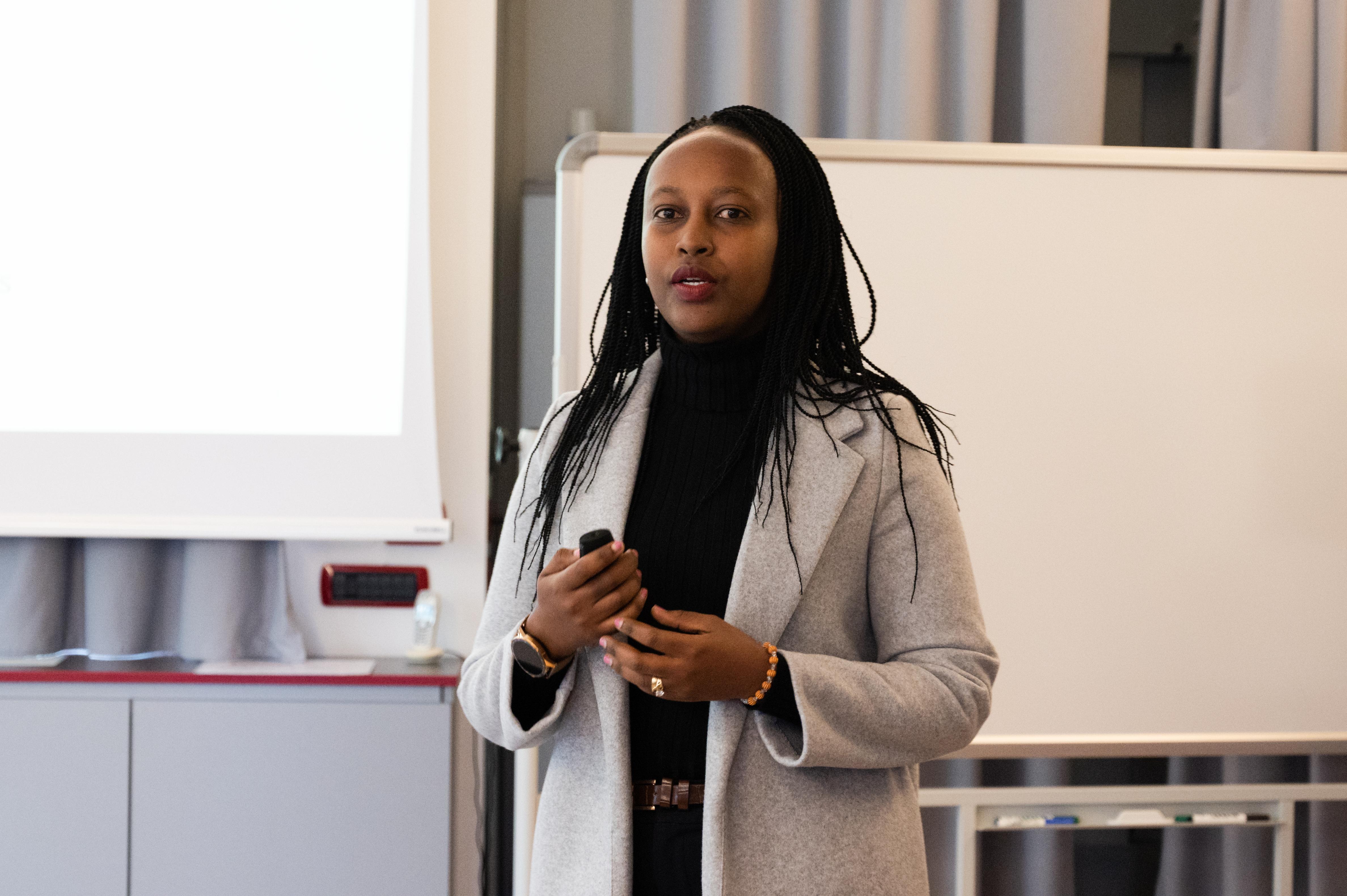
Her Italian experience provided clear lessons that she brought back to Burundi. She learned to pay attention to details, improved her self-confidence, and developed communication and scientific critical thinking skills. This new mindset, she stressed, allows her to make informed choices for her career.
Establishing strong collaboration with researchers from ICGEB will be an asset to organize targeted activities in Burundi. "The cultural dynamism I experienced at ICGEB has inspired me, and now I plan to organize seminars, conferences and collaborative projects between ICGEB and my home centre and other Burundian institutes," she said. Indeed, the PACTs fellowship has already proven to be a driving force to Ndayizeye's career growth. Before returning to Burundi, she will spend three months in Belgium at ‘La Haute Ecole Lucia de Brouckere’, where she will further build skills and her career.
Edrees Khan Rahmatzada is an Afghan biologist from Kabul, who worked at ICGEB in the tumour virology group led by ICGEB Director-General Lawrence Banks. For six months, Rahmatzada studied the human papillomavirus, joining efforts with Italian scientists to find ways to prevent the virus from entering a cell and causing a tumour.
During his visit, he learned several genetic engineering techniques. "The new skills that I have acquired enable me to be more autonomous in designing lab experiments, and proceed with more articulated research projects," he said.
The international setting taught him how to organize workshops and internships to train new generations of Afghan scientists, once he returns home. But for the time being, Rahmatzada has an important task to complete. He has been selected for a PhD position at ICGEB, where he will spend the next years building more skills before returning home. "Once I return to Afghanistan, I will continue the collaboration with my host supervisor," he said. "Building a well-equipped research lab is new to Afghanistan, and I will need the support of my colleagues from ICGEB."
The importance of science communication and science diplomacy
For some, the experience led to more awareness of the importance of science communication. Gaelle Ndayizeye plans to expand the list of speakers invited at local scientific conferences by searching for new connections abroad.
"To overcome the financial constraints, I will work to organize remote events as I learned at ICGEB," she said. "But PACTs also taught me how to write better research grant proposals, and obtain the funds we need to buy lab materials. I feel I will be able to give my contribution to develop research at the University of Burundi.”
After his PACTs experience, Ousman Bajinka says he has a dream. In Gambia, he aspires to build a school dedicated solely to science, where students can learn the most cutting-edge laboratory techniques. "I already have some funds, and I'm making connections to build a science high school. I want to put my experience at the service of local students, to avoid brain drain and to make the most from what I have learned," he said.
In the meantime, he is also committing himself on the role of science in diplomacy to advance the request of the Gambia to become an ICGEB Member State.
"Biotechnology is a driver of innovation in the developing world, especially for the most vulnerable countries. By focusing on early-career researchers from the global South, PACTs helped build competencies that will be instrumental for the future of the most underprivileged countries," said TWAS Programme Coordinator Max Paoli.
Cristina Serra
More photos are available on the TWAS Flickr page.

